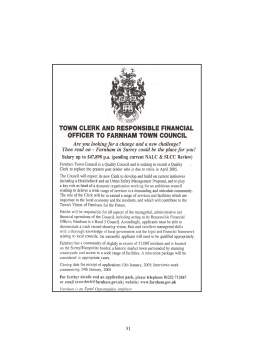Cuprins
- 1. Constitutional Issues . 3
- 2. Central Government . 13
- 3. Local Government . 24
- 4. The Balance of Power . 36
- 5. Rule Making Procedures . 48
- 6. Civil Servants . 58
- 7. The European Dimension . 69
- Bibliography .79
Extras din curs
UNIT 1 CONSTITUTIONAL ISSUES
Section A The Fundamental Law in the United Kingdom
There is a learned debate about whether Britain actually has a constitution. It clearly
lacks one in a widely used sense of the term: there is no single comprehensive written
code, or document, which sets out the rules affecting the relations between government
institutions and between these institutions and citizens. On the other hand, it does have
one in the sense that there is a body of laws, customs and conventions which define the
composition and powers of organs of the State and regulate the relations of the various
state organs to one another and to the private citizen. In other words, there are established
procedures affecting the conduct of government and politics, and these are largely
adhered to.
Britain has for long been widely regarded as a country that illustrates the claim that it is
not necessary to have a codified constitution to be a constitutional democracy. After all,
Britain has been a stable democracy for over a century and scores relatively highly as a
protector of civil liberties. Some commentators identify the term ‘constitutional’ with a
system of formal checks and balances on the government and a separation of powers
between government and other bodies.
Expressions of dissatisfaction with the workings of the political system often broadened
into a general concern about the health of British democracy and sometimes fuel
demands for the adoption of a written constitution. In the past, the existence of a
competitive two-party system, with its implicit checks and balances, independent groups
sharing élite values and traditions, and a broad political consensus may have made
constitutional safeguards seem unnecessary. Party competition, élite selfrestraint in the
exercise of power, and a broad political consensus had provided some insurance against
the abuse of power. But critics complain that these safeguards can no longer be taken for
granted.
There is a historical explanation why the British constitution is not codified in one
document. Since the system had evolved over centuries there already existed established
ways of conducting politics in Britain before written constitutions became fashionable. It
is only in the last two hundred years or so starting with the United States, that written
constitutions have spread. Most constitutions were originally adopted by states when they
became independent or suffered a rupture in their evolution through internal collapse or
invasion. In Britain, neither the system of government nor a formal set or rules has been
adopted at one point in time. Instead there is a political system, or set of arrangements,
and a style of politics that have evolved over centuries, rather than a constitution.
In a strict sense the British constitution is not unwritten, for large parts are documented.
An outstanding feature is that its principles are not codified but dispersed – across statute
law, common law, judges’ interpretations of these laws, and conventions – though texts
and commentaries on the constitution do provide some integration.
There are several sources of the constitution including:
1. Statute law, or law made by Parliament, which overrides common law and provides a
substantial part of the constitution. It includes such measures as the Bill of Rights (1689),
the Act of Union with Scotland (1707), successive Representation of the People Acts, and
the Government of Ireland Act (1920). These laws are made and may be unmade by Act
of Parliament, like any other. Even the provision that the House of Commons may not
prolong its own life beyond a five-year span without the consent of the House of Lords
may be changed by the normal legislative process.
2. Case law, or judges’ interpretations of statutes. Judges do not rule on the validity of a
law, duly passed by Parliament, but they do have the right to decide whether it has been
properly applied. By their interpretations the judges have an opportunity to shape the
application of the law.
3. European community law, expressed in the European Communities Act to which
Britain was a co-signatory in 1972, and subsequently amended by the Single European
Act (1987) and the European Communities (Amendment) Act (1993), which gave effect
to the Maastricht Treaty, now European Union law. British authorities are required to
accept the rules and regulations of the treaties, commitments flowing from them, and
future decisions taken by Community institutions. Community laws and regulations are
made by the European Commission and the Council of Ministers, and the European Court
of Justice declares which laws are self-executing.
4. Common law, for example, the traditional rights and liberties of subjects which have
been handed down by precedents and upheld by the courts.
5. Conventions or rules which, though lacking the force of law, have been adhered to for
so long that they are regarded as having a special authority. The conventions differ in
their firmness. Firm ones include the expectation that Parliament will be called at least
once a year, that the monarch will give her assent to legislation which has duly passed
through the appropriate stages in the two Houses of Parliament, and that the Prime
Minister and government will resign or dissolve Parliament following defeat on a
confidence vote in the Commons. On the other hand, some recent political developments
are matters of debate because no conventions have evolved. One can certainly envisage
political situations in the future where lack of relevant precedents will create uncertainty
about the appropriate course to follow.
Preview document
Conținut arhivă zip
- English in Administrative Settings.pdf























































































